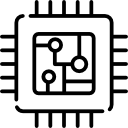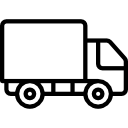Candidates
TU Delft Impact Contest

Solar Cleaner by BoberLabs (semi-finalist)
Solar panels accumulate dirt, bird droppings, and pollution, reducing efficiency and revenue due to soiling losses. Manual cleaning in Europe incurs high labor costs, offsetting the benefits of cleaning
Read moreProject: Aerosail (semi-finalist)
The shipping industry is a major contributor to global carbon emissions, producing approximately 706 million tonnes of CO₂ annually. As international trade grows, emissions from shipping are expected to rise, posing environmental and regulatory challenges. Current fuel-saving technologies often require expensive retrofitting, making adoption difficult for shipping companies. There is a need for a cost-effective, easily deployable solution that reduces fuel consumption and emissions without disrupting existing fleet operations. Meeting stricter environmental regulations while maintaining economic efficiency is a critical challenge for the maritime sector.
Read moreOn the road
Many travelers, especially solo young women, experience anxiety when navigating unfamiliar transit systems due to language barriers and hesitation in asking for help. The fear of miscommunication or safety concerns often discourages them from approaching strangers, making their journeys stressful and isolating.
Read moreThe Synergy Hub (semi-finalist)
We notice that teams in organisations are not harnessing the full potential of collaboration. Things like lack of vision and strategy, team misalignment, trust, defensiveness, and narcissism lead to reduced productivity and growth at best and destructive effects, at worst. Organisations and teams therefore suffer from underperformance and inefficiency, while also having members who are stressed, feeling disconnected, not feeling empowered, unable to be creative, and not feeling safe and included within their teams and organisations. Even if constructive conditions exist, collaborations still face hurdles to reach their full potential. This ultimately has an impact not only on the individuals, teams, and organisations, but on the society as a whole that would bear the costs of having members who are not thriving, happy and fulfilled.
Read moreAgriLoop - Sustainable Furniture Solutions
The furniture industry relies heavily on wood, leading to deforestation, habitat destruction, and increased carbon emissions. At the same time, vast amounts of agricultural waste are generated but underutilized, contributing to environmental degradation. The challenge lies in transforming these waste streams into viable, high-quality alternatives to wood while ensuring economic feasibility and supply chain stability.
Read moreOneFlex-EV
Coordinating EV charging between Charge Point Operators (CPOs), grid operators, and EV users remains a major challenge due to the lack of a one-stop solution. Existing platforms are often fragmented, making it difficult to optimize charging while considering grid constraints, pricing, and user preferences. Additionally, many solutions lack a simple web-based interface, limiting accessibility for stakeholders. Another key limitation is the absence of an ecosystem where new features, scheduling algorithms, and AI-based optimizations can seamlessly integrate as add-ons. This restricts flexibility and innovation, preventing stakeholders from adapting to evolving energy markets, dynamic grid conditions, and future technologies.
Read more











